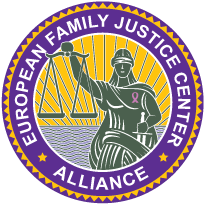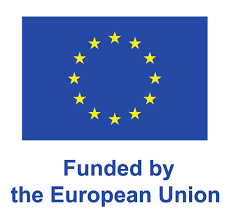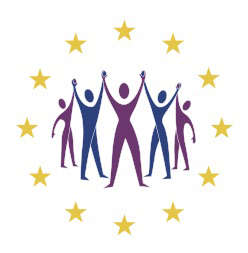Centers
EFJCA supports as umbrella organisation the European FJC'S, related multidisciplinary centers and developping multidisciplinary centers
Veilig Huis Antwerpen (Belgium, Antwerp)
Uitbreidingsstraat 180, 2600 Berchem
veilighuis.antwerpen@vlaanderen.be
www.vlaanderen.be/veilig-huis
Veilig Huis Rivierenland (Belgium, Mechelen)
Lange Schipstraat 27, 2800 Mechelen
veilighuis.rivierenland@vlaanderen.be
www.vlaanderen.be/veilig-huis
Veilig Huis Kempen (Belgium, Geel)
Antwerpseweg 1a, 2440 Geel
veilighuis.kempen@vlaanderen.be
www.vlaanderen.be/veilig-huis
Veilig Huis Limburg (Belgium, Hasselt)
Universiteitslaan 1, 3500 Hasselt
veilighuislimburg@vlaanderen.be
www.vlaanderen.be/veilig-huis
Veilig Huis Oost-Brabant (Belgium, Leuven)
Arnould Nobelstraat 40/0102, 3000 Leuven
veilighuis.oostbrabant@vlaanderen.be
www.vlaanderen.be/veilig-huis
Veilig Huis Halle-Vilvoorde (Belgium, Halle)
Auguste Demaeghtlaan 38, 1500 Halle
veilighuis.hallevilvoorde@vlaanderen.be
www.vlaanderen.be/veilig-huis
Veilig Huis Oost-Vlaanderen (Belgium, Gent)
Kon. Maria Hendrikaplein 70, 9000 Gent
veilighuis.oostvlaanderen@vlaanderen.be
www.vlaanderen.be/veilig-huis
Veilig Huis Zuid-West-Vlaanderen (Belgium, Kortrijk)
Passionistenlaan 82, 8500 Kortrijk
veilighuis.zuidwestvlaanderen@vlaanderen.be
www.vlaanderen.be/veilig-huis
Veilig Huis Noord-West-Vlaanderen (Belgium, Oostende)
Vrijhavenstraat 5, 8400 Oostende
veilighuis.noordwestvlaanderen@vlaanderen.be
www.vlaanderen.be/veilig-huis
DIVICO (Belgium, Liège and Brabant-Wallon)
Contactperson: Jean-Louis Simoens
jeanlouissimoens@polederessources.be
www.divico.org
Olista (Belgium, Brussels)
Contactperson: Anita Biondo
anita.biondo@safe.brussels
safe.brussels/nl/olista
Derry Foyle's Women's Aid (N-Ireland, Derry)
C/O Pathways, 24 Pump Street
L'Derry BT48 6JG, N.Ireland
00442871416800
info@foylefjc.org
foylefamilyjusticecentre.org
Bjarmahlíð (Iceland, Akureyri)
Bjarmahlíð, Aðalstræti 14, 600 Akureyri, Iceland
00355512520
bjarmahlid@bjarmahlid.is
www.bjarmahlid.is
Bjarkarhlíð Reykjavik (Iceland, Reykjavik)
Bjarkarhlíð við Bústaðarveg, 108 Reykjavik, Iceland
003545533000
bjarkarhlid@bjarkarhlid.is
www.bjarkarhlid.is
Sigurhæðir (Iceland, Victory Hills)
Contact: Hildur Jónsdóttir
Dvergholar 1, 800 Selfos, Iceland
003545814345
sigur@sigurhaedir.is
https://www.sigurhaedir.is/victoryhills
Maison d'Ella Bordeaux (France, Bordeaux)
381 Boulevard du Président Wilson, 33200 Bordeaux, France
00330557092577
maisondella33@gmail.com
www.lamaisondesfemmes.fr
Maison de Femmes (France, Paris)
1, chemin du Moulin Basset, 93200 Saint-Denis (Paris), France
0033142356128
contact@lamaisondesfemmes.fr
www.lamaisondesfemmes.fr
Warsaw Women's Right Center (Poland, Warsaw)
Centrum Praw Kobiet, ul. Wilcza 60 lok. 19, 00-679 Warszawa, Poland
00486222517
sekretariat@cpk.org.pl
cpk.org.pl
Fier (The Netherlands, Leeuwarden)
Holstmeerweg 1
8936 AS Leeuwarden
0031 58 2157084
www.fier.nl
Sterk Huis (The Netherlands, Goirle)
Rillaersebaan 75
5053 EA Goirle
www.sterkhuis.nl
Filomena (The Netherlands, Rotterdam)
Karl Weisbardstaat 225
3015 GE Rotterdam
0031 10 6681996
t.hoogwerf@filomena.nl
www.filomena.nl
FJC Milan (Italy, Milan)
Policlinico - FJC Milan
Contact: Dr Alessandra Kustermann
Via Quadronno 36, 20100 Milano, Italy
003955032359
svs@policlinico.mi.it
Trygg Relation (Sweden, Malmö)
Kungsgatan 13, 21211 Malmö, Sweden
004640349385
niclas.olsson@malmo.se
Union of Women Association of Heraklion Prefecture (Heraklion, Greece)
Meramvellou 56
71202 Heraklion (Crete/Greece)
00302810242121
projects@kakopoiisi.gr
www.kakopoiisi.org
FJC Aruba
Contact: Daphne Tecklenborg
daphnytecklenborg@gmail.com
FJC Bonaire
Contact: Tizania St.Jacoba-Rooi
tizania.rooi@bonairegov.com
DUGA (Zagreb, Croatia)
Contact: Željka Barić
baric@duga-zagreb.hr
Društvo za psihološku pomoć (Zagreb, Croatia)
Contact: Ivan Franić
ivanfranic@dpp.hr
Centre Dardedze (Riga, Latvia)
Contact: Agnese Sladzevska
agnese.sladzevska@centrsdardedze.lv
Naiste Tugi- ja Teabekeskus (Tartu, Estonia)
Contact: Pille Tsopp-Pagan
pille.tsopp-pagan@naistetugi.ee
Laois Domestic Abuse Service (Laois, Ireland)
Contact: Marna Carroll
marna@laoisdomesticabuseservice.ie
Construim comunități mai sigure împreună (Miroslava, Romania)
Contact: Laura Albu
lalbu@cmsc.ro


